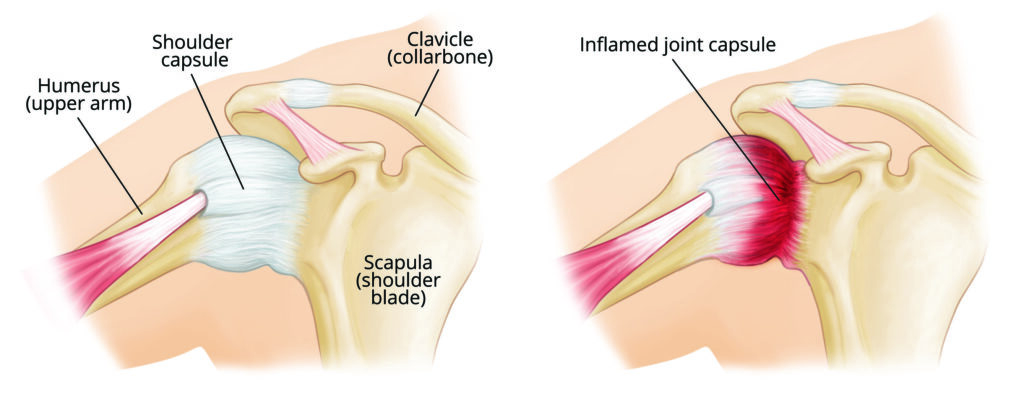Frozen shoulder (adhesive capsulitis) is stiffness, pain, and limited range of movement in your shoulder that may follow an injury.
Frozen shoulder can develop when you stop using the joint normally because of pain, injury, or a chronic health condition, such as diabetes or arthritis. Any shoulder problem can lead to frozen shoulder if you do not work to keep full range of motion.
The tissues around the joint stiffen, scar tissue forms, and shoulder movements become difficult and painful. The condition usually comes on slowly, then goes away slowly over the course of several months or longer.
Frozen shoulder typically develops slowly, and in three stages. Each of these stages can last a number of months: * Painful stage. During this stage, pain occurs with any movement of your shoulder, and your shoulder’s range of motion starts to become limited. *Frozen stage. Pain may begin to diminish during this stage. However, your shoulder becomes stiffer, and your range of motion decreases notably. * Thawing stage. During the thawing stage, the range of motion in your shoulder begins to improve.
Stage 1: Freezing
In the “freezing” stage, you slowly have more and more pain. As the pain worsens, your shoulder loses range of motion. Freezing typically lasts from 6 weeks to 9 months.
Stage 2: Frozen
Painful symptoms may actually improve during this stage, but the stiffness remains. During the 4 to 6 months of the “frozen” stage, daily activities may be very difficult.
Stage 3: Thawing
Shoulder motion slowly improves during the “thawing” stage. Complete return to normal or close to normal strength and motion typically takes from 6 months to 2 years.


